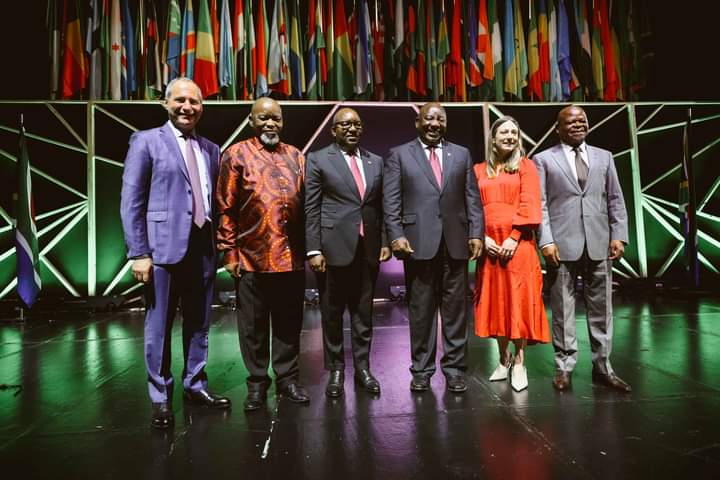African leaders and stakeholders urged the continent to move from exporting raw minerals to producing higher-value products at the Mining Indaba conference 2024 in Cape Town on Monday.
They said this would help Africa benefit from the global energy transition, which relies on the minerals that Africa has in abundance.
South African president Cyril Ramaphosa said Africa should not just send out “rock and dust and soil”, but rather use its raw materials to create value and jobs. He said that mining was at the heart of the energy transition, and that Africa could be the driving force of it.
He called for the Indaba to focus on how to use these opportunities to revitalize mining, improve value chains, and increase beneficiation.Some African countries have already started to process some of their minerals, such as lithium and cobalt, which are in high demand for batteries and electric vehicles.
For example, in the Democratic Republic of Congo (DRC), there are facilities to concentrate copper and cobalt, and some firms are looking to do the same with lithium ores.
The leaders also identified other products, such as nickel, manganese, and graphite, as potential sources of value creation.
They also emphasized the need for regional cooperation along the supply chain. They cited the Zambia-DRC plan to make batteries for electric bikes as a good example of collaboration.
Maximizing Africa’s Resources.
Tanzania’s deputy minerals minister Steven Kiruswa said that Africa wanted to share its resources with the world, but not just as raw materials by maximizing the value of its resources, without excluding anyone.
The leaders noted that more developed countries might soon regret taking African raw materials for cheap, with some countries having already imposed trade restrictions on some of the energy transition metals.
Ghana’s lands and natural resources minister Samuel Abu Jinapor said that Ghana would never export its lithium resources in their raw form.
He said his country was following the example of Indonesia, which banned nickel ore exports in 2020 and attracted a lot of investment.Indonesia’s success might inspire other African leaders to adopt similar strategies.
Zimbabwe and Namibia, which have large lithium reserves, have also introduced export controls on lithium ores.
However, some speakers cautioned that trade measures could also hamper the development of some projects.
Rishon Chimboza, the managing director for Africa at the Tony Blair Institute for Global Change, said that there was a trade-off between the government’s control and the capital investment needed.
He suggested that heads of state might have to negotiate directly in large resource deals across continents, because of the strategic importance of these materials.
Marit Kitaw, the interim director of the African Minerals Development Centre of the African Union (AU), said that African countries needed to stand together when it came to energy transition materials. He said countries should work within the AU, like the EU countries do, to get better deals.
He also said African countries were weak when they were isolated, but strong when they were united. He said that regional integration would attract more investment.

